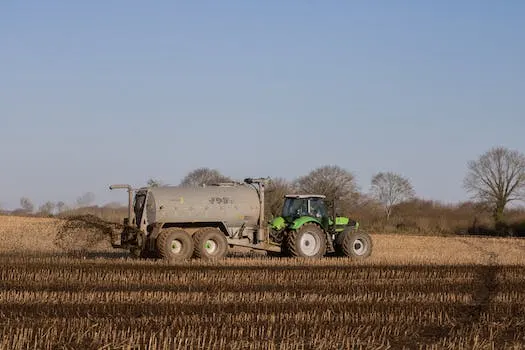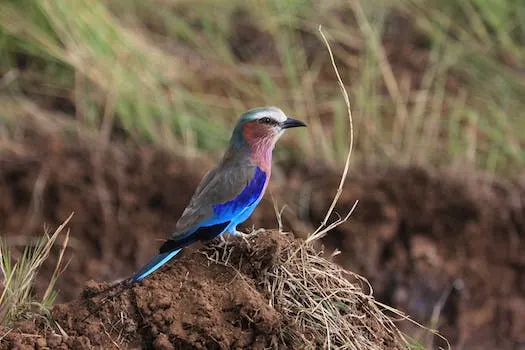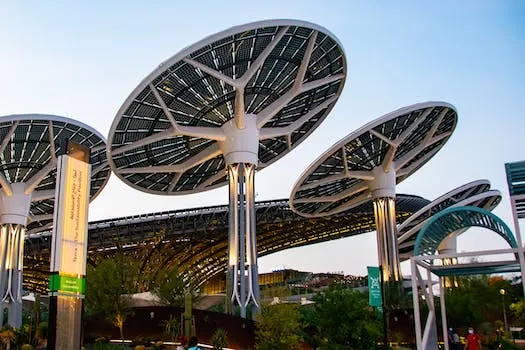
The Incredible Ways Ants Help the Environment
Ants are often overlooked as an important part of the environment, but they play a vital role in keeping our planet healthy and thriving. From aerating soil to decomposing dead matter, ants are essential for maintaining a balanced ecosystem. They help to keep the environment clean by consuming dead insect carcasses and aiding in the destruction and decomposition of plant and animal matter. Ants also help to enrich the soil by creating tunnels underground which allow air, water, and nutrients to reach deeper levels of soil. This helps plants grow more easily and efficiently. Furthermore, ants can be beneficial in controlling pests such as aphids that can damage crops or other plants if left unchecked.
In addition to their environmental benefits, ants also provide us with some unique advantages that we may not have considered before. For example, certain species of ants produce antibiotics which can be used for medicinal purposes or even as food preservatives! Ants also act as natural pest control agents by preying on other insects that could potentially harm crops or spread disease if left unchecked. Finally, some species of ants have been found to produce compounds that can be used for various industrial applications such as dyes or fragrances!
The incredible ways in which ants help the environment should not be underestimated; they are an integral part of our planet's delicate balance between nature and human activity. We must do our best to protect these tiny creatures so that they may continue providing us with their invaluable services for years to come! By understanding how important these little critters are for our planet's health we can take steps towards protecting them from harm while still enjoying their many benefits at the same time!
Soil Health
Ants are essential for soil health, as they are one of the few animals that can dig deep into the soil and create tunnels and burrows. This helps to aerate the soil, allowing air and water to penetrate more deeply, which in turn helps plant roots to grow and take in more nutrients. Ants also help mix up different layers of soil, distributing organic matter evenly throughout it. This creates a nutrient-rich environment for plants that encourages their growth and development. In addition to ants, other animals such as rabbits, moles, earthworms also play an important role in maintaining healthy soils. These animals dig holes or burrow into the ground which brings oxygen to plant roots while loosening up the soil structure so that water can penetrate deeper into it. Furthermore, pore-size distribution is important for crop production as it allows water, air and nutrients to enter the soil efficiently (Indoria et al., 2017b). All these activities help maintain healthy soils by providing them with necessary oxygen levels while ensuring proper drainage of water from them.
Pest Control
Ants can be a powerful tool in pest control, as they feed on other insects such as aphids, caterpillars, and other plant-damaging pests. They also help to keep their populations in check by competing with them for food and resources. In addition to this, ants can help reduce the spread of disease by eating decaying material and transporting it away from the area. Recent research has found that ants are more effective than pesticides at helping farmers produce food due to their ability to kill pests more efficiently.
On outdoor plants, ants protect and care for honeydew-producing insects such as aphids, soft scales, whiteflies, and mealybugs which increases crop yields. As predators of these pests they reduce pest abundance and plant damage caused by lost leaf area or fruit/seed damage. Interactions between ants and honeydew-producing hemipteran insects are abundant in arthropod food webs with ecological consequences that have yet to be fully understood.
Some species of ants have a special symbiotic relationship with aphids - they farm them! Aphids feed primarily on the sap from plants while the ant protects them from predators in exchange for honeydew secretions produced by the aphid's body which is then consumed by the ant colony. When disturbed fire ants will swarm out to attack intruders; they are omnivorous eating plants, insects oils etc., making them an effective form of pest control when needed.
Pollination
Ants may not be the most efficient pollinators, but they do play a role in helping plants reproduce. As ants forage for food rewards, they move from flower to flower transferring pollen which helps to ensure that plants are able to continue thriving. Although some ants have been found to not be important pollinators, their movement of pollen is still beneficial as it helps maintain natural plant communities and produce seeds in flowering plants. Ants also help sustain our ecosystems by carrying pollen from one plant to another and producing natural resources. Despite their abundance, the number of ant-pollinated plants is low due to the fact that they can only carry small amounts of pollen at a time. Nevertheless, their contribution should not be overlooked as it plays an important part in helping keep our environment healthy and balanced.
Nutrient Cycling
Ants are essential for nutrient cycling in the environment. They help to transport nutrients from one area to another, which helps ensure that plants and animals have access to the necessary nutrients they need for survival. Ants also play a role in breaking down organic matter, releasing vital nutrients back into the environment. This is an important part of the nutrient cycle as it helps keep the environment healthy and balanced. Additionally, ants turn and aerate soil, allowing water and oxygen to reach plant roots. Furthermore, ants take seeds down into their nests where they can be stored safely until conditions are favorable for germination.
Mineralization is another key process in nutrient cycling that occurs when soil organisms decompose organic matter, releasing plant-available forms of nutrients into the environment. Desert arthropods such as beetles also play an important role in this process by processing and transporting plant litter belowground where decomposer activity can occur more easily. Decomposers then cycle these nutrients back into food chains while unconsumed matter is used up or dissipated as heat energy.
Beetles are particularly important for breaking down dung and recycling its valuable nutrients back into the soil so that they can be used again by other organisms further along in food chains or webs. By-products from growing roots and plant residues also feed soil organisms which then support plant health by decomposing organic matter and cycling vital minerals through ecosystems once again. All of these processes combined make up a complex but essential system known as nutrient cycling which helps maintain balance within our natural environments.
How Can We Help Ants?
We can help ants by taking a few simple steps in our yards and gardens. Firstly, we should avoid using pesticides as these can be harmful to ants and other beneficial insects. Secondly, we can create habitats for them by providing materials such as twigs, leaves, and pieces of bark for them to build their nests. This will give them a safe place to live and help ensure they thrive in our environment. Additionally, we can use items like baking soda or baby powder inside the ant nest or anthill, along ant trails, and anywhere else you see ants. White vinegar is also an effective way of deterring ant colonies; simply pour around 1 litre directly into the nest or spray it on the soil where they are likely to travel. Finally, setting out ant baits is an effective method for controlling an infestation; this will attract the ants so that they take the bait back to their colony where it will be shared with other members of their community. By following these steps we can help protect our environment from unwanted pests while also helping out some of its smallest inhabitants – ants!
Conclusion
In conclusion, ants are essential for a healthy environment. They play a vital role in soil health, pest control, pollination and nutrient cycling. By avoiding the use of pesticides and creating habitats for ants, we can help to ensure that our environment remains healthy and balanced for years to come. Ants turn and aerate the soil, allowing water and oxygen to reach plant roots while also helping to keep pest populations low. They act as decomposers by feeding on organic waste, insects or other dead animals which helps keep the environment clean. Ant colonies aerate and enrich the soil by recycling dead animals, insects and decaying matter which places nutrients back into the ecosystem. Tunneling ants turn over as much soil as earthworms do which helps aerate the soil while redistributing nutrients. Finally, they make good ecosystem indicators because they interact with many other species in their environment. All of these incredible ways that ants help our environment should be appreciated so that we can continue to protect them in order to maintain a healthy balance in our ecosystems for years to come.










